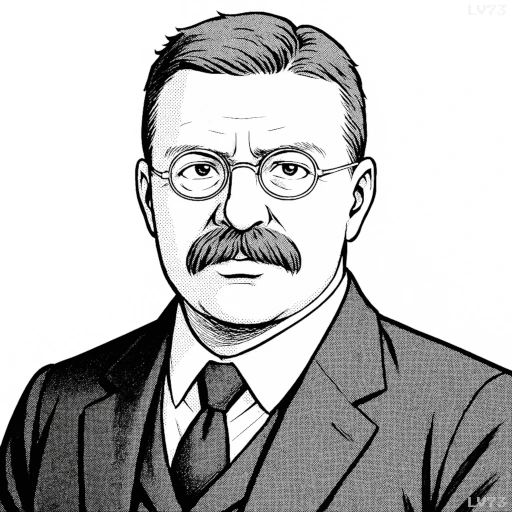“No people is wholly civilized where a distinction is drawn between stealing an office and stealing a purse.”

- October 27, 1858 – January 6, 1919
- American
- Politician, military officer
table of contents
Quote
“No people is wholly civilized where a distinction is drawn between stealing an office and stealing a purse.”
Explanation
In this quote, Roosevelt draws a powerful parallel between corruption in politics and common crimes like theft. He argues that a society cannot be considered truly civilized if it accepts political corruption—such as the act of illegally acquiring power or influence—while condemning more straightforward criminal acts like theft or fraud. Roosevelt emphasizes that corruption in any form, whether it occurs in the public sphere or in everyday life, is equally detrimental to a fair and just society. By making a distinction between stealing a purse (a straightforward crime) and stealing an office (a form of political dishonesty), Roosevelt highlights the moral hypocrisy in tolerating corruption while condemning other types of theft.
Roosevelt was a fierce opponent of political corruption, particularly in the form of monopolies and trusts that held undue influence over government decisions. He believed that integrity in public office was essential to the functioning of a healthy democracy. His progressive reforms and trust-busting efforts aimed to ensure that political leaders acted in the public’s best interest and were held accountable for any corrupt practices.
This quote continues to resonate today, particularly in discussions about political accountability, ethics in government, and campaign finance reform. It challenges the idea that certain forms of corruption are acceptable or forgivable, while others are not. Roosevelt’s words serve as a reminder that true civilization and moral leadership require equal standards of accountability, regardless of the nature of the offense or the position of the person involved. Whether in politics or everyday life, Roosevelt’s statement calls for a society where integrity is paramount, and no form of corruption—be it stealing a purse or an office—is tolerated.
Would you like to share your impressions or related stories about this quote in the comments section?



